Author’s bio
Francisca Rockey is a penultimate year BSc Geography student at York St John University who is interested in conservation, biodiversity and African ecology. Outside of her degree, Francisca is a conservation volunteer at St Nicks Environment Centre in York and Action for Conservation across the South East region. Upon completion of her degree, Francisca hopes to continue her work in conservation through postgraduate study or working at an existing organisation that combines conservation and young people.
My experience at The British Ecological Society Undergraduate Summer School
In summer 2021, I took part in the British Ecological Society’s (BES) undergraduate Summer School and I wanted to share my experience for any other students looking to pursue a career in ecology.
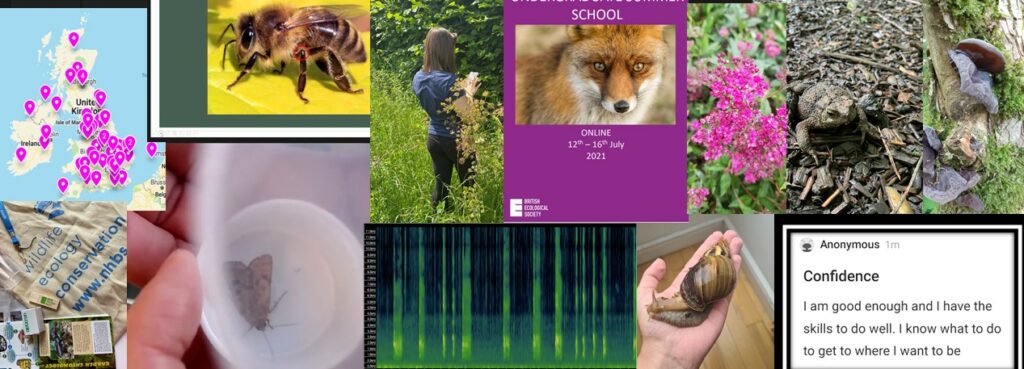
A collection of pictures (cropped to remove faces from Zoom screenshots) taken across the week by myself and other undergraduate and postgraduate students on the summer school. Credit – BES.
The BES is the largest scientific society for ecologists in Europe and the annual summer school is an opportunity for both undergraduate and postgraduate students to gain greater insight into what ecology entails and where you can go with a degree in ecology or related subjects like geography. Due to COVID, my summer school was entirely virtual but, usually, the summer school is in-person at a remote location in the UK. For example, the 2019 Summer School was run from FSC Millport in Scotland.
Before applying for the summer school, I wasn’t 100% sure if I could transition from geography to ecology as I had only done one module (Ecosystems and Biogeography) specific to ecology, so I didn’t send my application until a few hours before the deadline (don’t be like me; apply as early as possible). The application process is fairly simple: you’re given a series of questions surrounding ecology and 200-500 words to answer them, the rest is general admin questions (e.g., where you’re from, what you study), and you don’t need a reference from your academic tutor or previous employer.
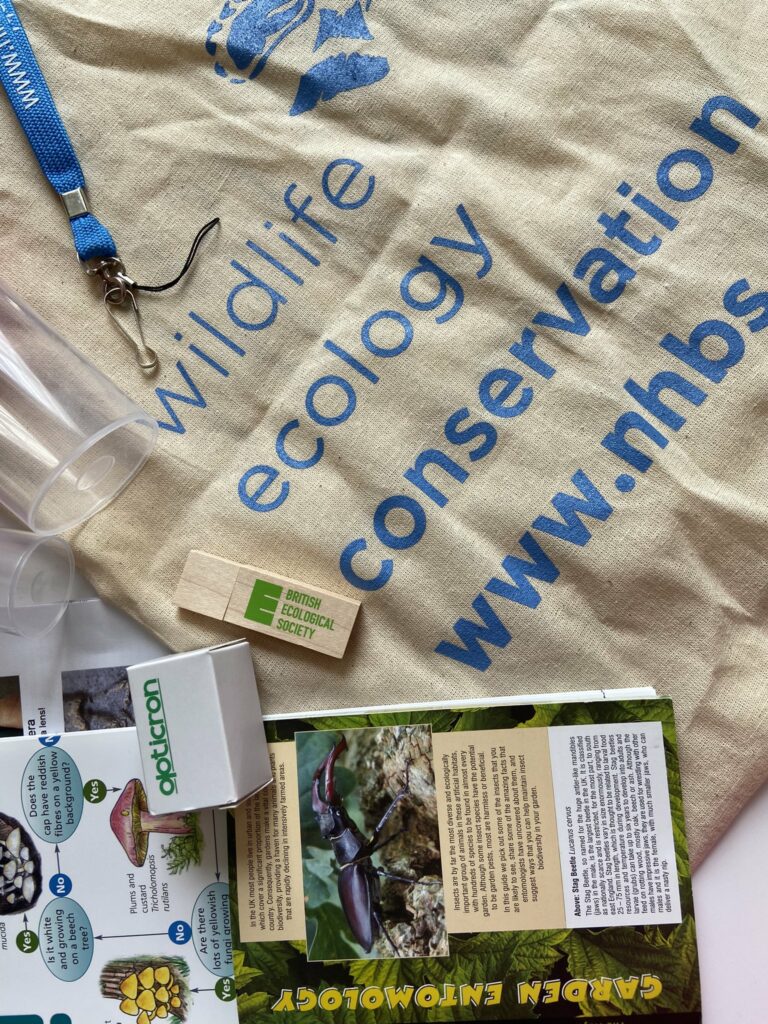
Pre-Summer School preparation and resources (garden entomology guide, a USB stick, tote bag, a fungi guide and guides for our remote fieldwork sessions, pictured below) from the BES. Credit – Francisca Rockey.
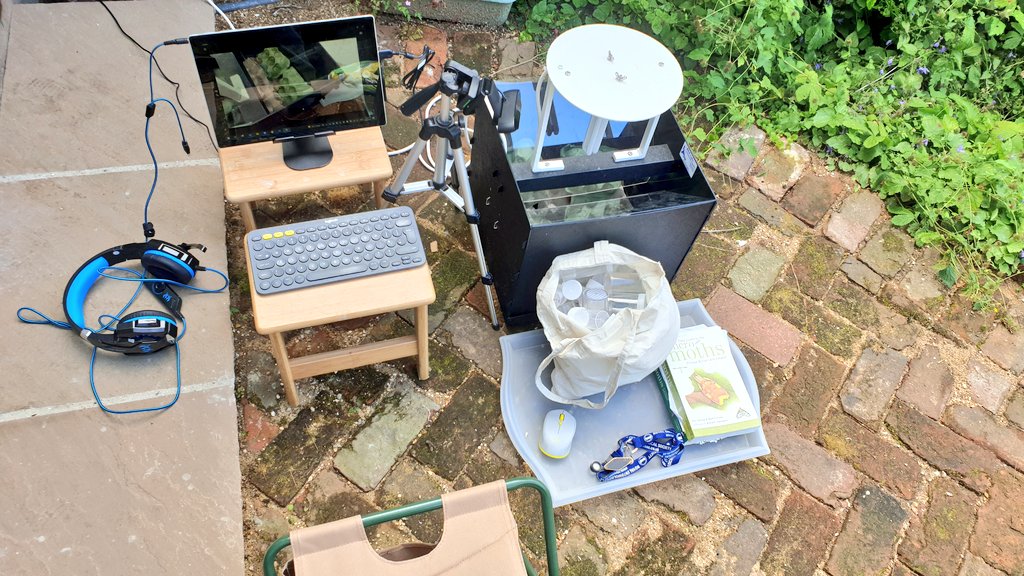
Practice set up for moth trapping at 07:30am the following day. Credit – Francisca Sconce.
In the space of a week (5 days), we had sessions on:
- Building your social media presence (for science communication and raising your personal profile)
- Mentorships (each of us was assigned a personal mentor studying a postgraduate or PhD
- Eco-anxiety (persistent worries about the future of the Earth)
- An introduction to R (a programming language) and the world of statistics
- Masters and PhD applications
- Opportunities abroad
- Methods for plant ID
- Mycology (study of the fungal kingdom) – see image below
- Introduction to Entomology (the study of insects) and the Royal Entomology Society
- Volunteering opportunities
- Media, Broadcasting and Communications
- And much more!
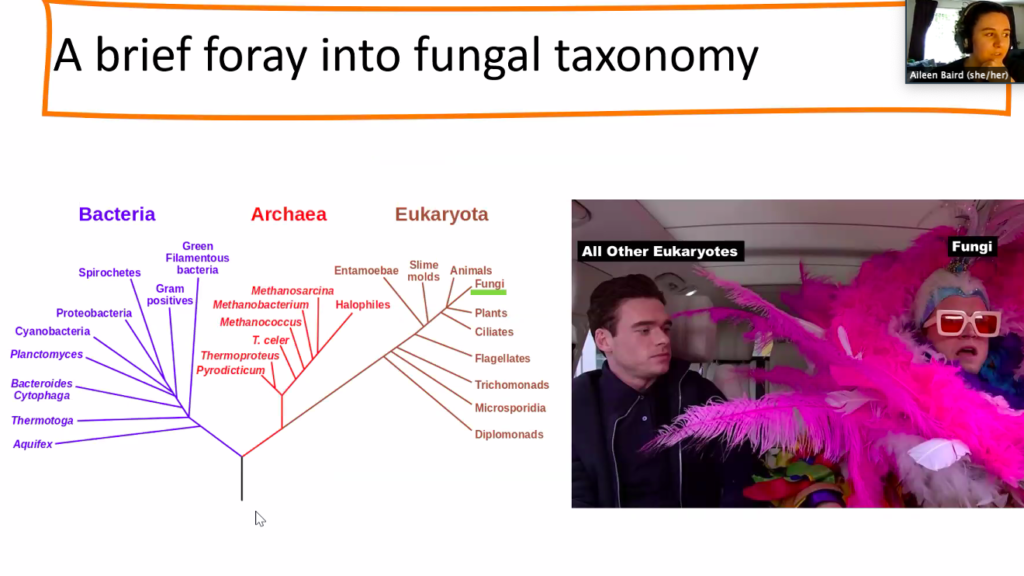
Introduction to mycology (study of the fungal kingdom). Credit – Aileen Baird
Our final day was focused on careers in consultancy, policy, becoming a member of a society outside of the BES such as The Chartered Institute of Ecology and Environmental Management (CIEEM), and continued professional development (CPD).

Advice from Mariann, BES Summer School alumni. Credit – Francisca Rockey.
We also heard from BES Summer School alumni on where they are now, how the programme has helped them with their postgraduate careers and studies, and their top tips for current Summer School students.
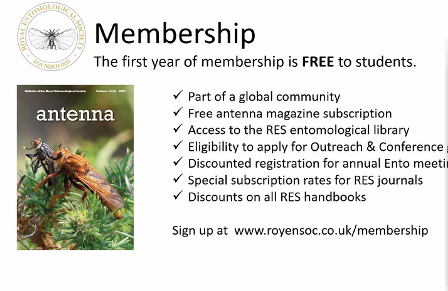
Information about student membership to the Royal Entomology Society. Credit – Sarah Raymond
To sum up
The Summer School opened my eyes to the endless possibilities that a career in ecology can provide. I got to meet and network with current and aspiring ecologists, join The Racial and Ethnic Equality and Diversity (REED) ecological network, and gain both a supportive network of Black, Asian and minority ethnic ecologists and assist the platform in their mission to reduce racial inequalities that impact BAME ecologists in their career and education. I also had the opportunity to write a piece for The Niche, the quarterly BES magazine which is pretty cool!
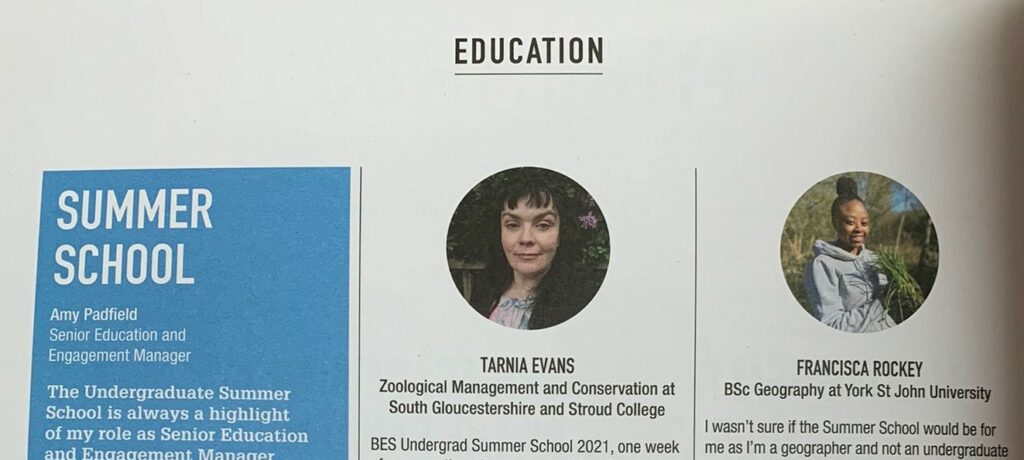
Snapshot of BES Summer School alumni feature in The Niche magazine, Autumn 2021 issue. Credit – Isobel Rowe.
Contact
Connect with me on Twitter @franciscarockey or email francisca.rockey@yorksj.ac.uk, if you have any questions regarding the Summer School and application process.